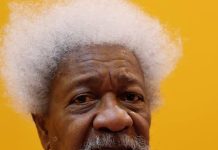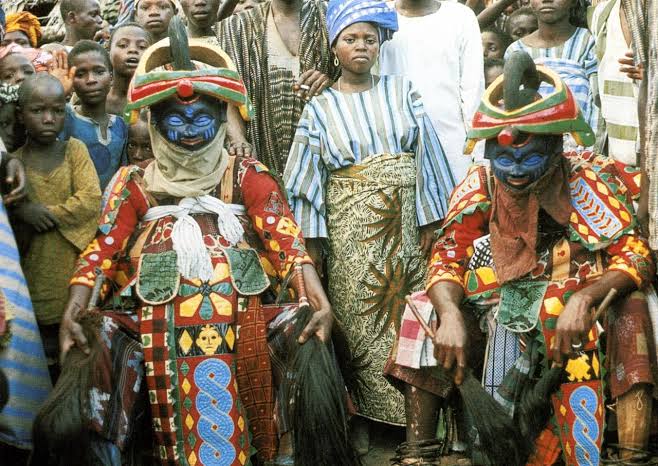Allah is Not Obliged by Ahmadou Kourouma is a historical novel that captures in detail the political crises and internal strifes in both Sierra Leone and Liberia.
The novel is more of a history class on its own — history told from the perspective of an active participant, though a child, in the crises. The novel alternates between facts and fiction. Anyone who does not have prior knowledge of the root causes of both Sierra Leonean and Liberian civil wars only need to flip through the pages of this novel to have a full grasp of what really happened.
The novel shows the extent of havoc tribalism aggravated by individual’s lust for power can wreak on a society.
Allah is Not Obliged projects the picture of a dystopian world where killings are banal, modeled after Hobbesian state of nature where only the strong and mighty survive.
In this perverted world, innocence is dead and the young are left to fend for themselves. The world projected in the novel unleashes children on a mindless killing spree. The narrator, Birahima, is an archetype of such child-soldiers. We see through his eyes how children die like flies in wars they have not the least clue on how they started. “Great big fucked-up world”, “fucked-up barbaric country”, “fucked-up country of damned souls and cacabas” are used in the description of this dystopian world.
The novel takes the readers through Birahima’s troubled childhood in Guinea to his odyssey across Liberia and Sierra Leone. We come to understand the plight of child-soldiers through Birahima’s funeral orations.
The novel also deconstructs an African society enshrouded in ignorance and superstitions. Birahima’s mother’s health condition might not have worsened if her leg had been amputated and her people had not been misled about a viable spiritual alternative.
In its deconstruction, it becomes very easy for readers to see through the false air of spirituality Africans have always surrounded themselves with. The child-soldiers, for example, at the mercy of crooks like Yacouba, face bullets with the belief that they are protected with ‘grigis” made by Yacouba and his likes.
Allah is Not Obliged shows in no small way that superstition is the one thing Africans, regardless of tribes, have in common. This is exemplified by the belief that when you hurt little twins, their gnamas (ghosts) would haunt you. This superstition is in consonance with the Yoruba’s concept of “Orisa Ibeji”.
In the novel, there is a thin line between the two Abrahamic religions and the traditional spiritual practice. There is often the fusion of the two practices supposedly on the opposite sides of the fringe. This is exemplified by the presence of both Muslim grigrimen and Christian grigrimen in the novel.
The novel highlights the failure of religion vis-a-vis humanity in chaotic moments. Colonel Papa le Bon and Prince Johnson are examples of failed products of religion. They manipulate religion precepts and institution for their own ends. That they command a large blind following despite their distorted views only confirm the vulnerability of religion in the wrong hands.
The novel is replete with expletives and swear words. These, I believe, the author uses to portray the poor upbringing of Birahima.
I, however, find amusing the fact that Birahima narrates how soldiers, both adults and children, die in crossfire without the slightest of emotion.
He does not own up to killing anyone neither does he single out his individual contribution to the chaos. He is either guilty or not proud of his involvement.
When he talks about soldiers killing others, he makes the thing collective. For example, when Foday Sankoh and his heartless cohorts are cutting people’s arms so they can not vote, Birahima does not admit that he is part of the cruelty at a later stage. This implicit denial and deliberate collectivism are significant in that they project a guiltless conscience-dead child.
Besides, his precept of otherness explains why he is quick to denounce ECOMOG peacekeeping mission in a way that apparently represents them as a third force in the crises who kill as much as the parties involved themselves.
What Birahima would however not say is that he is not different from ECOMOG. He is a foreigner too and doing exact same thing he accuses ECOMOG of.
One expects a gory story of this nature told with first person narrative technique to show the emotive side of Birahima at the height of the senseless killings which Birahima’s narrative lacks. All he cares about are material things, food and his aunt. Maybe his expletives can fill in for his emotions anyway.
Allah is Not Obliged as the title implies aims a dig at the creation process and human existence. Allah creates man and then leaves him at the mercy of other men, watches the world go into chaos and does not intervene. He is not obliged to intervene because there is a reward/justice system in heaven. So, He leaves man to his own devices here on earth.
I don’t want to believe the narrator repeats “Allah is not obliged to be fair about everything he does here on earth” without trying to convey a message, however cryptic, that discredits the belief system.
Of course, we can excuse the fact that the narrator uses a lowercase “h” in “he” everytime he references Allah on the account of his semi-literacy.
In summation, Allah is Not Obliged explores the concept of faith, the power tussle in West Africa, the place of superstitions and myths in Africa, the hypocrisy of the West, and harps more on the helpless fate of child-soldiers — pawns in a chess game set by mindless prejudiced adults.
A novel with similar thematic preoccupation is Uzodinma Iweala’s Beasts of No Nation, written long after Allah is Not Obliged was written.
 WHATSAPP: Click HERE to join the new Literature PADI WhatsApp group to receive latest updates on your phone and for further literary discussions!
WHATSAPP: Click HERE to join the new Literature PADI WhatsApp group to receive latest updates on your phone and for further literary discussions!












Themes in Ahmadou Kourouma’s Allah is Not Obliged
Comments are closed.